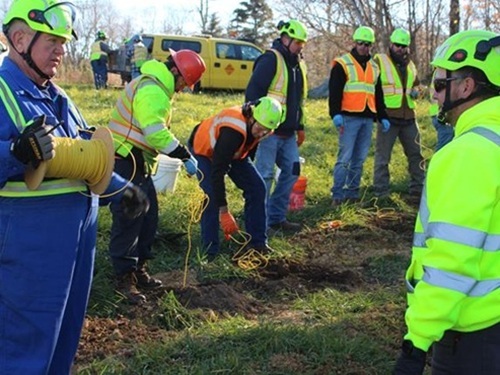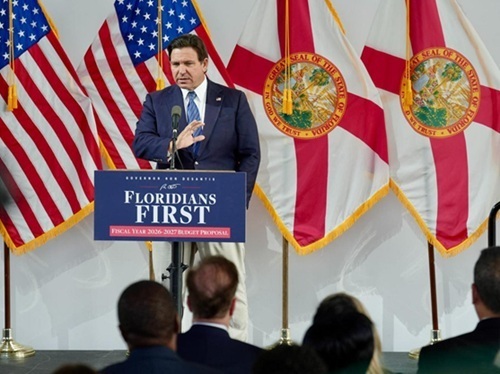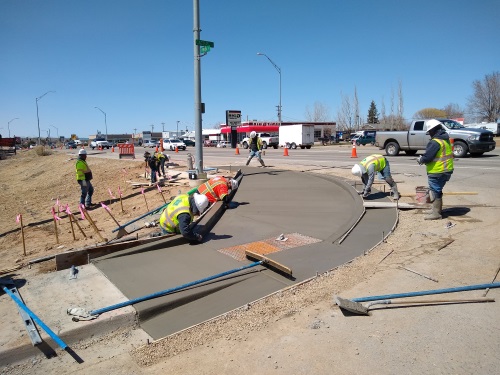Colorado’s governor and state legislative leaders issued a $5.268 billion funding proposal on May 4 to support an 11-year plan to fix roads and bridges, improve transit options, and meet the state’s climate goals while “future proofing” its transportation systems.
[Above photo by the Colorado DOT]
The proposal’s funding relies on what Governor Jared Polis (D) called “a fair and responsible mix of state, federal, and fee revenue that reflects all the users and uses of our transportation system.”

For the first two years, the proposal reduces vehicle registration fees, saving motorists money in 2021 and 2022, while holding off implementation of all new fees until 2023 – fees that would cost the average driver about $28 in the first year and would be eventually apply to all users of the state’s transportation system. Those fees are in lieu of motor fuel tax increases, according to the proposal.
Gov. Polis said the new fee revenue would generate nearly $3.8 billion, with the bill also leveraging nearly $1.5 billion in state general fund revenue and stimulus dollars.

“We can’t talk about the Colorado comeback without bold action to modernize our roads, bridges, and transit, and that’s what this bill is all about,” the governor explained in a statement.
He also noted that the value of Colorado’s motor fuel tax – created in 1991 – “has significantly eroded” over the last three decades, leaving Colorado roads and transportation system “drastically underfunded.” The bill will create a sustainable funding source for transportation infrastructure
That is why Gov. Polis said this funding legislation “is about the future of our state, and today we are taking an important step toward making that vision a reality. [It] has come together after months of collaboration, hard work, and compromise, and we now have an opportunity to create a solution that saves people money right away by reducing vehicle registration fees and works for the Colorado of tomorrow, including creating cleaner air and more efficient transportation.”

The bill also promotes collaboration between the Colorado Department of Transportation, Department of Public Health & Environment, and the Colorado Energy Office to coordinate climate change response both regionally and statewide as well as guide transportation investments in rural and disproportionately impacted communities.
That also includes broader investment in electric vehicle charging infrastructure plus the expansion of multi-modal and transit options to reduce congestion and improve air quality.

To ensure transparency, the bill requires “performance and accountability measures” for “every entity that receives funding” through the proposal. The Colorado Energy Office and Colorado Department of Public Health and Environment are also required to report on progress made toward the electric vehicle adoption goals in the “Colorado Electric Vehicle Plan 2020.”
It also requires tracking greenhouse gas emissions from the transportation sector to ensure they align with “pollution reduction goals” in the “Colorado Greenhouse Gas Pollution Reduction Roadmap.”
Finally, the Colorado DOT and the other public agencies involved with key aspects of the proposal’s transportation plans must maintain “public dashboards” that display key performance indicators for projects paid for by the funding in this bill.
 States
States
NCDOT Staff Participate in ‘Explosive’ Technical Training
December 19, 2025 States
States

